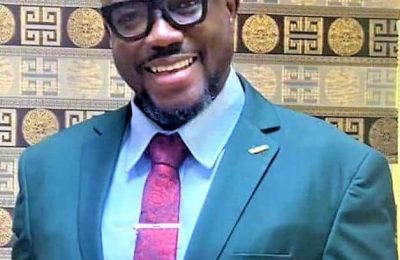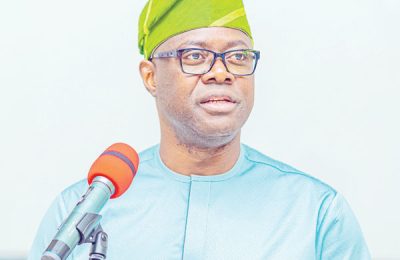
By Sunday. T.Taiwo

IN a democracy, elections are pivotal to public administration, development and democratic sustainability being the sole legal instrument that allows for citizens to decide and elect their representatives at the helm of affairs where governance and policy-making mechanisms are developed over time. Howbeit, there is no gainsaying that no critical development effort can succeed without a government that is responsive and accountable to its citizens. Being accountable is a burden that is placed on the public sector when it accepts responsibility for exercising powers on behalf of the public; as the people entrust in a candidate their collective mandate by voting into power, it is both constitutionally and morally expected of such a candidate to work effectively towards fulfilling his/her end of the social contract.
In Nigeria, public accountability is a dwindling phenomenon, and amidst the nations of the world, the country has attained a high level of public sector corruption and gross mismanagement of public finance which has impacted greatly on our corporate development from local to national levels. Nigeria, having dropped from 26 in 2019, to 25 in 2020, and 24 in 2021 assessment, the country again stood at 24 of 100 in the 2022 Corruption Perceptions Index(CPI) of Transparency International (TI). Through the CPI, TI measures the level of public sector corruption in the systems of 180 countries around the world and rank accordingly. Ranked 150 of 180 with CPI score of 24 attests to the fact that despite the current administration’s commitment to battle corrupt practices, corruption in Nigeria’s public sector has grossly worsened in the last 4 years even.
Paradigm Leadership Support Initiative (PLSI)’s analysis of the 2019 audit report of the federation revealed that the sum of N455.14bn was not accounted for by 70 MDAs of the federal government, being 20.69 percent of the N2.2tn total funds released in 2019 fiscal year. Similarly, its Subnational Audit Efficacy Index 2021 which assessed accountability levels in the management of public funds across the 36 states in Nigeria revealed that only 11 out of the 36 states of the federation assessed, conducted either performance or compliance audit on public expenditure in 2020. This translates to the fact that 25 Offices of State Auditors-General did not adhere to procurement and financial regulations by government MDAs which limits their state’s ability to achieve value for money on programs and projects implemented in the year 2020. These cited narratives are fractions of the many gross public sector misconducts which have not only created a big trust gap between citizens and government officials but gravely hinders socioeconomic development in the country. To curb the sheer lack of public accountability, such that public resources will be judiciously channeled for public good, it is imperative to strengthen public audit practices at the national and subnational levels.
At the moment, the foremost audit institution in Nigeria – Office of the Auditor-General for the Federation is legally disempowered, as the office still operates with an obsolete legal framework – 1956 Audit Ordinance which provides very limited chances for the institution to fully deliver on its mandate. Many Civil Society Organizations (CSOs) in Nigeria have made several calls for the enactment of the Federal Audit Service Bill, which if fully implemented will strengthen Nigeria’s SAI to operate independently (providing financial and administrative autonomy) and nip corruption in the bud. The gains that came with the implementation of the Electoral Act 2022, which has improved INEC operations, especially its Results Management System thereby guaranteeing a more credible polls can be better consolidated if the Federal Audit Service Bill is also implemented, to enable the Supreme Audit Institution (SAI) efficiently fight corruption in the Nigeria public sector and foster accountability in the management of public funds.
To advance this, citizens need to collaborate with CSOs and other critical stakeholders to through collective efforts, drive reforms that will seek to accelerate the enactment of a modern audit law that provides for administrative and financial autonomy of the Office of the Auditor-General for the Federation, and also, to expedite actions towards enhancing the implementation of new audit laws that guarantee financial autonomy for the Offices of the Auditor-Generals at the subnational level. The forthcoming 2023 elections offer a chance. As the much-anticipated elections drew closer, data showed the high rate of undecided voters through several opinion polls conducted online to measure the winning possibilities of each leading presidential aspirant. One amongst them is the ANAP Poll which recorded 29 percent undecided voters and 23 percent voters who wouldn’t want to reveal their preferred candidate.
There is no gainsaying that citizens’ electoral dispositions are daily being influenced by a number of development challenges the populace is suffering from, especially the severe economic hardship the recent petrol supply shortage and naira notes scarcity have brought upon us. It is however important for citizens to prioritise studying the effectiveness of the public accountability roadmap of each candidate as one of the core parameters to justify their electoral choices and opt for their preferred candidates among other factors.
- Taiwo, a civic engagement professional, writes in from Ibadan.
READ ALSO FROM NIGERIAN TRIBUNE








